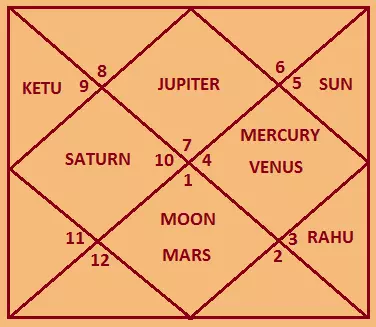Western Astrology

Best Astrologer in India: - Dr.A.S.Kalra
Western Astrology
Western Astrology
Insights into Zodiac Signs, Planets & Houses
What is Western Astrology?
Western Astrology is a system of divination based on the position of celestial bodies—primarily the Sun, Moon, and planets—at the time of a person’s birth. It traces its roots back to Babylonian traditions and was later developed extensively in Ancient Greece and Rome. Western Astrology typically uses the **Tropical Zodiac**, which is aligned with the seasons.
The 12 Zodiac Signs
Western Astrology divides the sky into twelve 30° segments, each representing a zodiac sign:
- ♈ Aries (March 21 – April 19)
- ♉ Taurus (April 20 – May 20)
- ♊ Gemini (May 21 – June 20)
- ♋ Cancer (June 21 – July 22)
- ♌ Leo (July 23 – August 22)
- ♍ Virgo (August 23 – September 22)
- ♎ Libra (September 23 – October 22)
- ♏ Scorpio (October 23 – November 21)
- ♐ Sagittarius (November 22 – December 21)
- ♑ Capricorn (December 22 – January 19)
- ♒ Aquarius (January 20 – February 18)
- ♓ Pisces (February 19 – March 20)
Each sign is associated with certain personality traits and elemental energies (Fire, Earth, Air, Water).
The Role of Planets
In Western Astrology, each planet symbolizes a different aspect of personality and life:
- Sun – Identity and ego
- Moon – Emotions and intuition
- Mercury – Communication and intellect
- Venus – Love and aesthetics
- Mars – Action and passion
- Jupiter – Growth and abundance
- Saturn – Discipline and responsibility
- Uranus – Innovation and rebellion
- Neptune – Imagination and spirituality
- Pluto – Transformation and power
The Astrological Houses
A natal chart is divided into 12 houses, each representing a different life domain—such as relationships, career, family, and finances. The placement of planets within these houses provides deep insights into one’s life path.
Horoscope and Natal Chart
A **horoscope** is a forecast based on planetary positions at a specific time. A **natal chart** or **birth chart** is a map of where the planets were at the exact time of your birth. It is the foundation for detailed Western Astrology readings.
| No. | Type of Astrology |
|---|---|
| 1 | Indian Vedic Astrology |
| 2 | Western Astrology |
| 3 | Palmistry |
| 4 | Numerology |
| 5 | Tarot Card Reading |
| 6 | Chinese Astrology |
| 7 | Tibetan Astrology |
| 8 | Kabbalah Astrology |
| 9 | I-Ching |
| 10 | Runes |
| 11 | Mayan Astrology |
| 12 | Horary Astrology |
| 13 | Electional Astrology |
| 14 | Financial Astrology |
| 15 | Medical Astrology |
| 16 | Coffee Cup Reading |


